Editor’s Note: This is the first of a three-part series on the fallout of the Reagan presidency
Court cases of the 1960’s and 1970’s gave evangelical populations the false impression they were being targeted. This led to Reagan’s intertwining of religion and Republicanism through the Moral Majority which created a powerful voting block. The effects of this are still noticeable today in fervent Christian nationalism among evangelical voters, who express QAnon beliefs, lies about America’s foundation, and anti-democracy sentiments, putting young voters in an important position.
The United States currently faces myriad issues. While the root causes are generally hard to nail down, the presidency of Ronald Reagan was a flashpoint for worsening conditions religiously, socially, and economically, in a way that reverberates today.
Reagan is a figure of great importance to the current Republican party, exploding in popularity after his presidency, especially among the general public. Reagan has been mentioned at least once in every Republican presidential debate since 1999, with an increase in mentions each subsequent cycle.
Reagan didn’t take office until 1981, but the circumstances that aided his ascension reached deep into America’s past.
Christianity was widespread among both conservatives and liberals throughout American history until the 1960’s.
“The most obvious religious divisions tended to be Protestant vs. Catholic, rather than Christian vs. non-Christian,” Dr. Adam Cayton, a UWF professor in government, said. “There were plenty of non religious people, but we wouldn’t have seen a conflict between the religious and non-religious.”
So what happened?
STINGING COURT DEFEATS FOR EVANGELICALS
Throughout the 1960’s, social changes, counterculture, the Vietnam War, and new currents of thought caused a gradual-but-steady decrease in the number of people who practice the Christian faith. Because of this trend, the stage was set for religious and non-religious voters to become increasingly at odds, rather than continuing squabbles between Protestants and Catholics, a new conflict that hadn’t been seen arose.
In its 1962 Engel v. Vitale decision, the Supreme Court ruled that school prayers were a violation of the Establishment Clause. In 1963, via Abington School District v. Schempp, the Court determined mandatory bible readings unconstitutional. Then, the 1968 case Epperson v. Arkansas saw the justices void a ban on the instruction of evolution. This, along with the progress of the Civil Rights movement, galvanized evangelical voters.
This galvanization continued throughout the 1970’s. In 1971, through Lemon v. Kurtzman, the Court denied government funds for religious schools. The Equal Rights Amendment passed Congress in 1972, but wouldn’t be ratified by the states; and Roe v. Wade legalized abortion in 1973.
The string of landmark court decisions, along with pushes for gender and racial equality by Congress, would give evangelicals the false impression they were being targeted. To a historically dominant population, equality often feels like discrimination.
EVANGELICALS RESPOND
The Moral Majority, headed by Jerry Falwell, arose in 1979 as a response to this impression and evangelical dissatisfaction with Jimmy Carter. The mission offered by the group centered on a desire to ban abortions and combat homosexuality. As abortion had been decided by the Supreme Court six years before the PAC’s formation, this is clearly a half-truth, more acceptable than the real goal of preserving segregated private Christian schools.
Falwell rose to prominence through televangelism, a relatively new method of proselytizing, and pastoring a Baptist megachurch in Virginia. The flashpoint for the Majority’s founding came when the tax-exempt status of Falwell’s own Lynchburg Christian School and the faith-based Bob Jones University, were questioned on the grounds of discrimination claims.
BJU remained segregated until 1970 and refused to admit unmarried black students until 1975.
Brown v. Board of Education,the landmark 1954 decision, did not apply to segregated private institutions; between 1970 and 1980 enrollment in non-Catholic private schools increased from 563,000 students to 1.3 million.
“What happened in a lot of the South was private schools, many were religiously affiliated schools, and would only allow white students to be admitted…these schools even earned the nickname segregation academies,” Cayton said.
The group was seeking to exert the power of the evangelical vote and dollar on our government and legislative process. The aim was to combat the recent applications of the separation of church and state, and target the segregation academies.
The Moral Majority looked to reinvigorate the declining popularity of racist, sexist and homophobic beliefs. Those same ideals allowed white evangelicals to amass much power, money and land throughout American history.
REAGAN EMERGES
Jimmy Carter, an avid “born-again Christian” and pastor, was the sitting Democrat who Reagan eventually unseated.
Carter secured the evangelical vote in his first campaign, but in the 1980 election saw the group that gave him power flip to Reagan. Carter was undeniably more devout than Reagan, yet his policies were more progressive,causing him to be perceived as unfit in the eyes of the Moral Majority and other voters on the right wing.
Carter was the last of a dying breed of progressive white, protestant, politicians, a Christian with the ability to be steadfast in faith, yet tolerant of social movements and religiously non-authoritarian in policy.
This perceived failure in the eyes of more extreme evangelical voters, coupled with the Iran Hostage Crisis and domestic economic instability, ushered in Reagan.
Reagan promised to do exactly what Carter wouldn’t, earning the fanatical support of the Moral Majority, and subsequently the presidency. In the grand scheme of things, Reagan’s victory symbolized the most profound initial intertwining of extreme, invasive Christianity with the Republican Party.
Thanks to the power afforded evangelicals by sheer numbers at the ballot box and financial influence of Christians’ wallets on lobbying and fundraising efforts, the moral right was able to shake up national politics.
ECHOS OF REAGAN RESOUND
The manner of media and propaganda produced by the Moral Majority and similar movements of the 70’s and 80’s shares a striking similarity with current evangelical talking points and interests on the right.
The desire for education to be private and allowances for segregation relate to today’s homeschool and school-choice sentiments. The threat of homosexuality destroying traditional families and society still persists as does the right’s desire to return to traditional gender roles, as echoed by current “red-pill,” “alpha male,” content creators, alongside politicians and pastors.
The threat of diversity amid the years following civil rights progress draws commonality with the racist Great Replacement Theory, which has been endorsed by conservatives and conservative media.
Christian nationalism is the term for the type of extreme religious fervor that bleeds into politics and legislation; it “identifies the nation with God’s will and action in the world; conflates national and Christian identity; and identifies service of the nation with service of God,” according to Dr. David W. Scott of the United Methodist Church.
Christian nationalism is dangerous for two primary reasons. First, it operates with total disregard for our separation of church and state, which is a vital aspect of the American experience.
Evangelicals frequently parrot the narrative that America is a Christian nation; and while some founding fathers were Protestant or Catholic, America was not established as a bastion of Christianity, but of religious freedom. The separation of church and state was a guarantee of complete religious freedom, strengthened by the Establishment clause, which prevents the government from “respecting an establishment of religion.”
Meaning that Americans can participate in whichever religion they wish, but the government may not establish Christianity, or any other religion, as official. This includes justifying legislation and judicial cases with a religious argument, as this goes on to affect those of any faith, or of no faith. This constitutes the establishment of an individually irrelevant religion, infringing upon the liberty of another, on grounds not relevant in their own life.
Secondly, Christian nationalism is prone to violence because of its proximity to white supremacy and authoritarian movements, like fascism.
A recent survey from Brookings and the PRRI found that 17% of respondents believed America is a white, Christian nation, and are willing to fight to maintain that.
Also, 16% of those surveyed believe that America has gone so off track that true patriots will have to resort to violence in order to save the country.
A staggering 74% of Christian nationalists, and 69% of Christian nationalist sympathizers believe America doesn’t obey authority enough, with 50% and 38% supporting the idea of an authoritarian leader
Notice the integration of religious symbolism in white supremacist groups, like the Klu Klux Klan, now evident in the Proud Boys and Oathkeepers. This reaches back to Reconstruction in the 1800’s. These groups went so far as to stylize racists as crusaders and holy soldiers.
Similar to fascist movements, Christian nationalism rests on the vision of a nation’s mythic past.
In America, this looks like the widely accepted belief among evangelicals that America was founded as and is still meant to be a Christian nation, that pop-culture has been becoming more secular and leading kids astray.
Make America Great Again is, in itself, an appeal to a mythic past, this slogan was utilized by the most popular Republican now, just as it was by Reagan in the 80’s. Nonstop rhetoric about returning to good Christian values, about restoring the sanctity of marriage and the family, which has been destroyed by the gay community and feminism.
This is more than just an occasional talking point or data collected from anonymous questionnaires. There is a significant number of Republican evangelical and political leaders who have either claimed the title Christian nationalist or embraced the talking points of the radical ideology, which has led to noticeable instances of violence, hate crimes and even an attempted thwarting of our democracy.
THE ULTIMATE PERMUTATION OF CHRISTIAN NATIONALISM
The January 6th insurrection is another example of Christian nationalism harbored by the current evangelical right. Conservative talking heads and influencers have been staunch in their claims that the insurrection was instead caused by a coalition of Antifa activists and deep-state actors, an attempt to frame Republicans and target the presidency of Donald Trump.
This is laughable seeing that insurrectionists led prayers and carried crosses, bibles, and other religious paraphernalia. These religious symbols were typically accompanied by MAGA and QAnon banners. These individuals were motivated solely on the complete lie from Trump that the election was stolen.
January 6, 2021, is important in two ways. It demonstrates that Christian nationalists have the capability to organize behind a political figure, and are radicalized to the point that violence, and an attempted overthrow of democracy, seems completely permissible. Blatantly hypocritical for the party claiming to be about law and order.
Additionally, the prevalence of QAnon and other similar conspiracy theories among evangelicals is yet another indicator of a sizable Christian nationalist population.
QAnon believers say the world’s run by a secret cabal of Jewish, devil-worshiping child predators; and adherents believe Trump was secretly fighting this cabal in the shadows, planning a storm of arrests, and that he also staged Russia’s interference in the 2016 election to prevent a coup by Barack Obama and Hillary Clinton. QAnon is also antisemitic, with George Soros and the Rothschild family being constant targets.
Returning to the Brookings study, 24% of Americans believe a “storm” is coming to restore our rightful leaders, while 19% believe that the government, media, and finance are controlled by Satan-worshiping pedophiles. These numbers jump when only considering the Christian nationalist respondents, with nearly 60% of QAnon believers also identifying as Christian nationalists.
WHAT IT MEANS FOR YOUNGER GENERATIONS
For Generations Z and Alpha, political involvement has shown to be quite powerful. Younger Americans care deeply about reproductive rights, gender equality, and climate change, all factors that stymied the predicted Republican midterm victories in 2022.
Christian nationalists, in their dogmatic pro-life views, disregard for marriage equality and dismissal of climate change concerns, have put themselves at odds with many younger voters.
With all three of these aspects in American politics, among others, it is clear that the American people, and especially the younger generations, have strong views, but hope is continually dashed by Christian nationalist sentiments in our politics, and the right as a whole. Roe v. Wade was just overturned, climate change denialists are entrenching themselves even more, and LGBTQ Americans are still victimized and targeted, increasingly so among transgender citizens.
Despite how popular these three views are among the American public, there is still little-to-no change. Some state legislatures are even turning back the clock, undoing work that was the result of hundreds of years of fighting. This is the fallout of authoritarian, Christian nationalist politics, a defiance of democracy and the will of the people to cater to the religious, ignorant and hateful views harbored by a minority.
The fight against quite literally every political position close to Generations Z and Alpha’s hearts is the widespread goal Christian nationalists propagandize, lobby and fight to achieve. The struggle between religious extremist pandering politicians and laws, in conflict with those who wish to create a new, improved, modernized America has been long going and will continue for the foreseeable future.
One thing is clear, young voters in America have an important role in the years to come as it pertains to fighting Christian nationalism’s assault on the rights of women, the LGBTQ community and ultimately our sacred democracy. This role was catalyzed through Reagan’s catering to the Moral Majority and traditionalist voters, which has influenced the Republican party up to and in the current day.

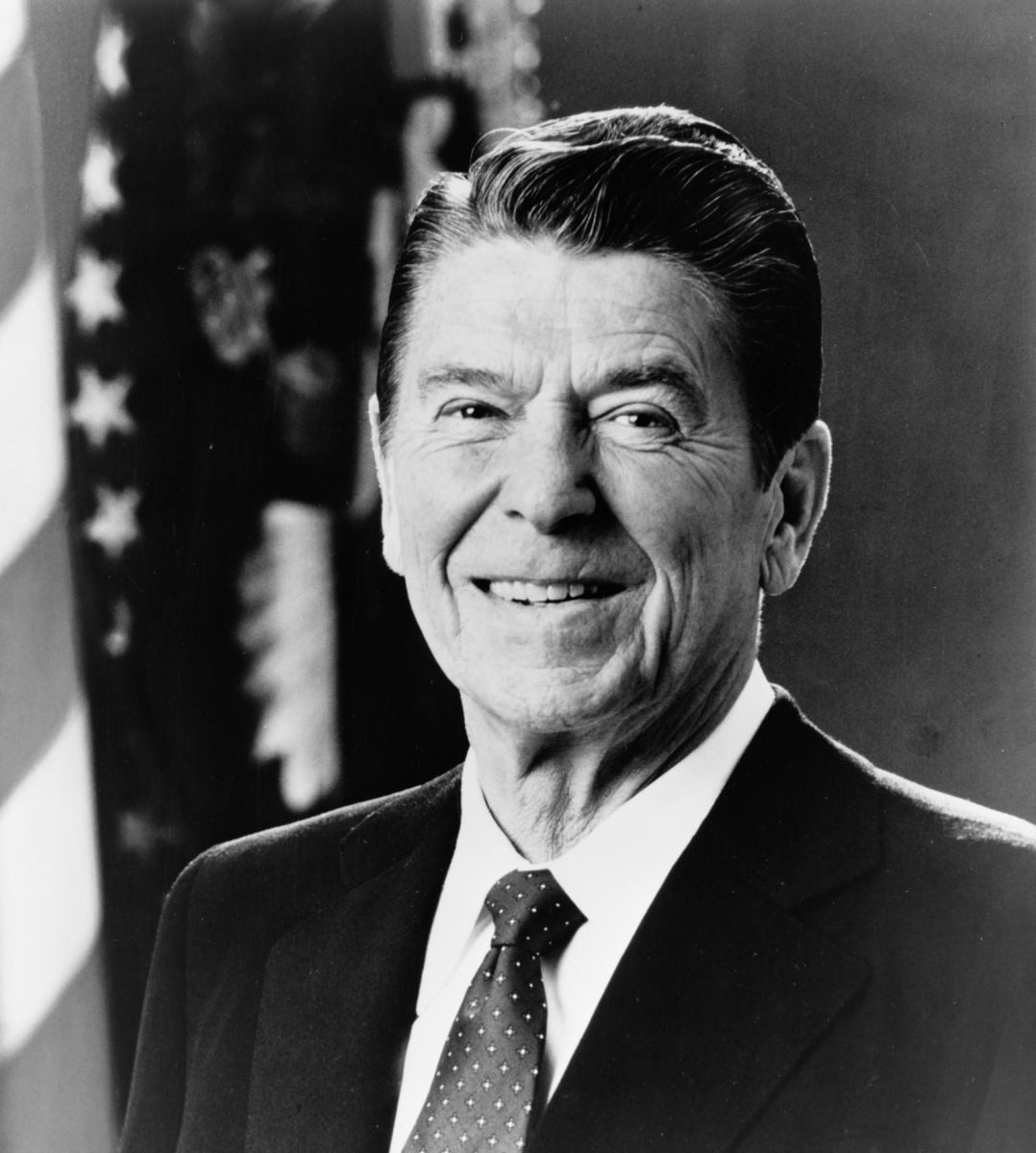
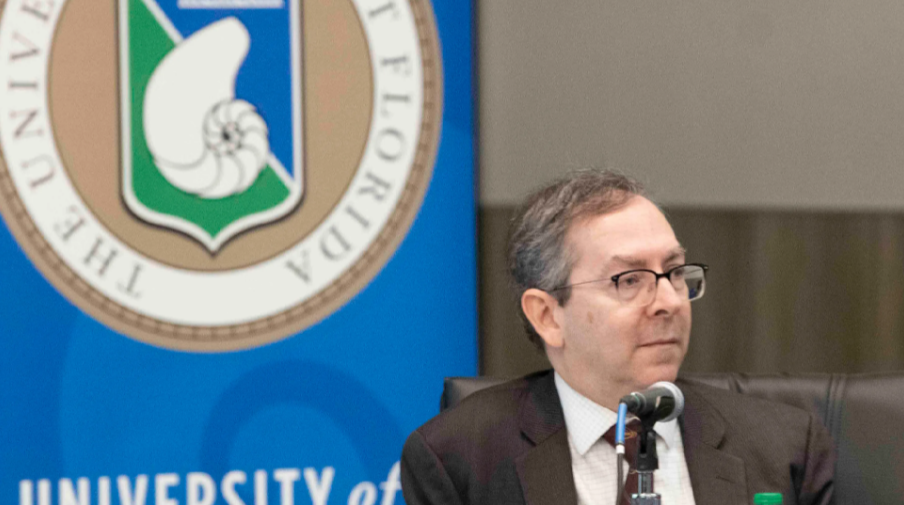
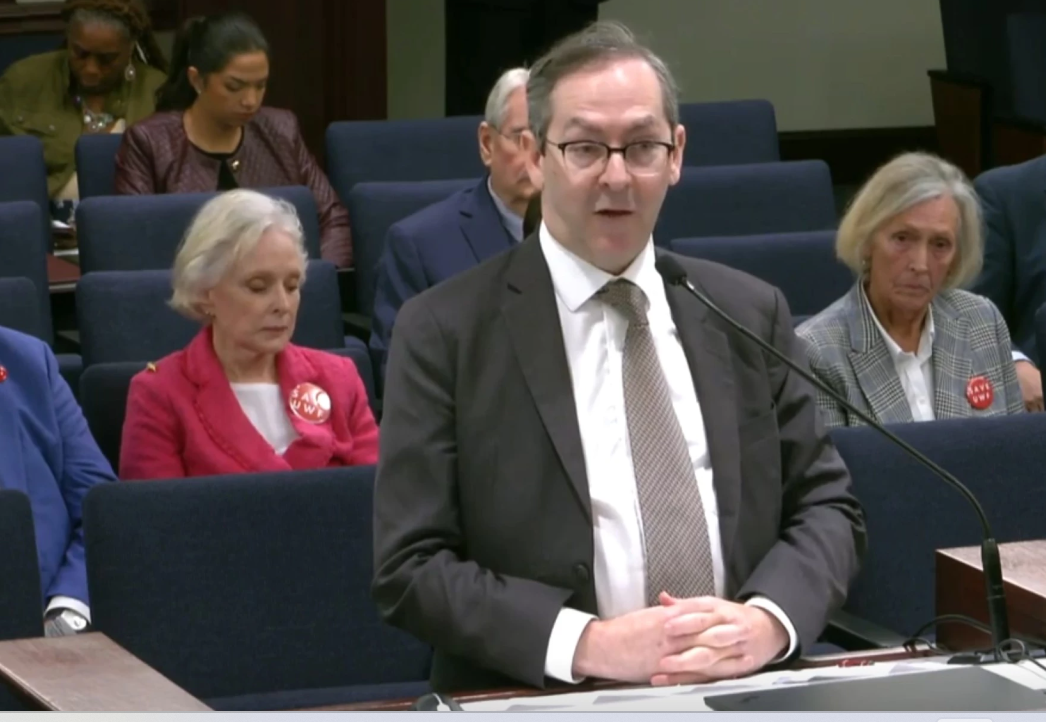
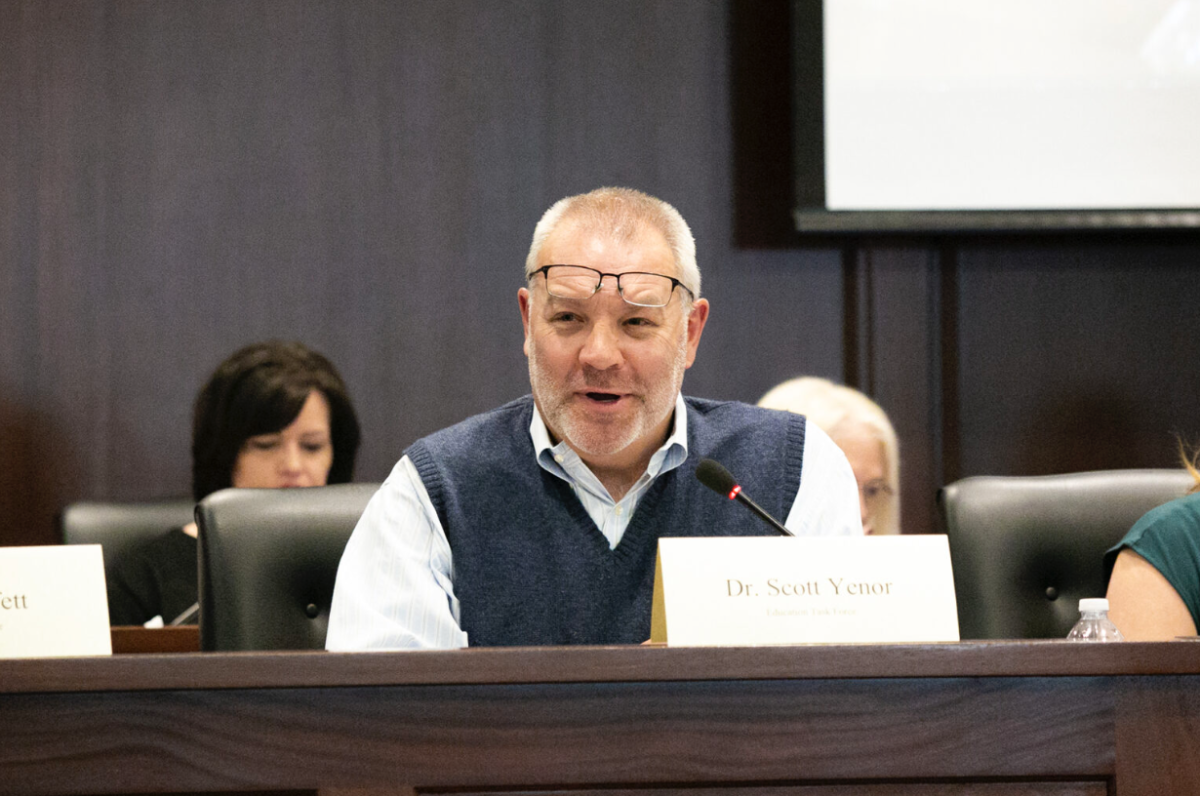
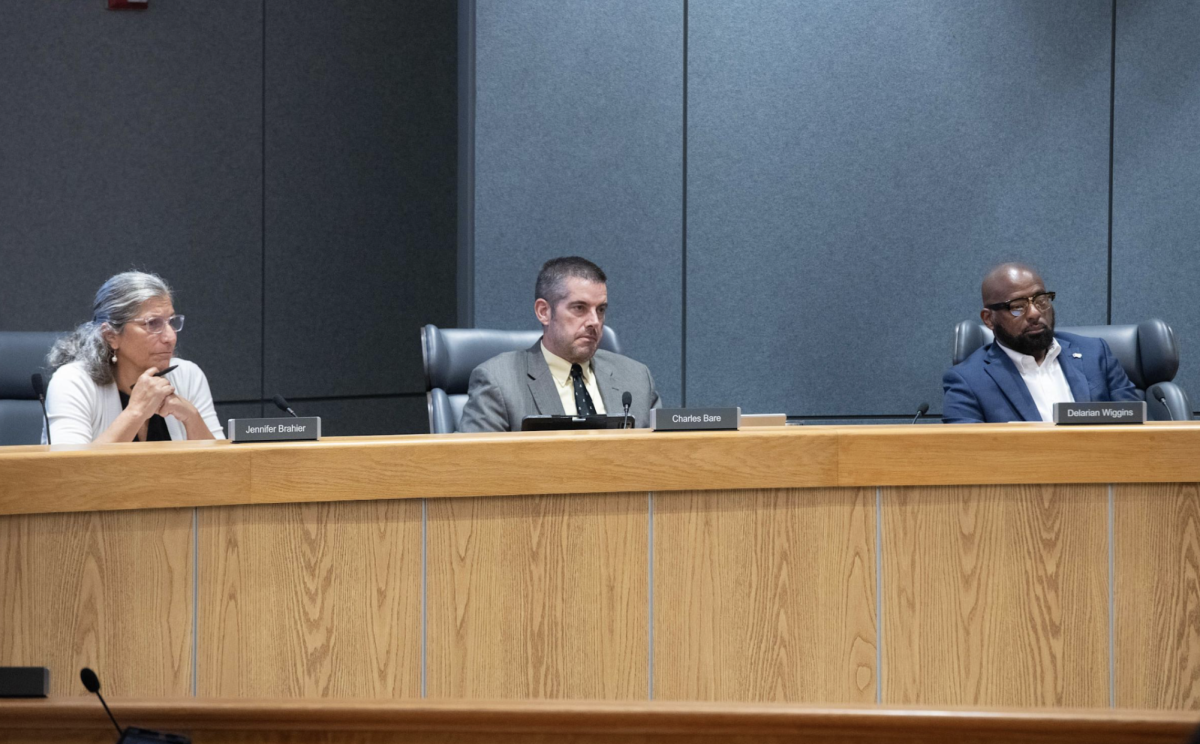
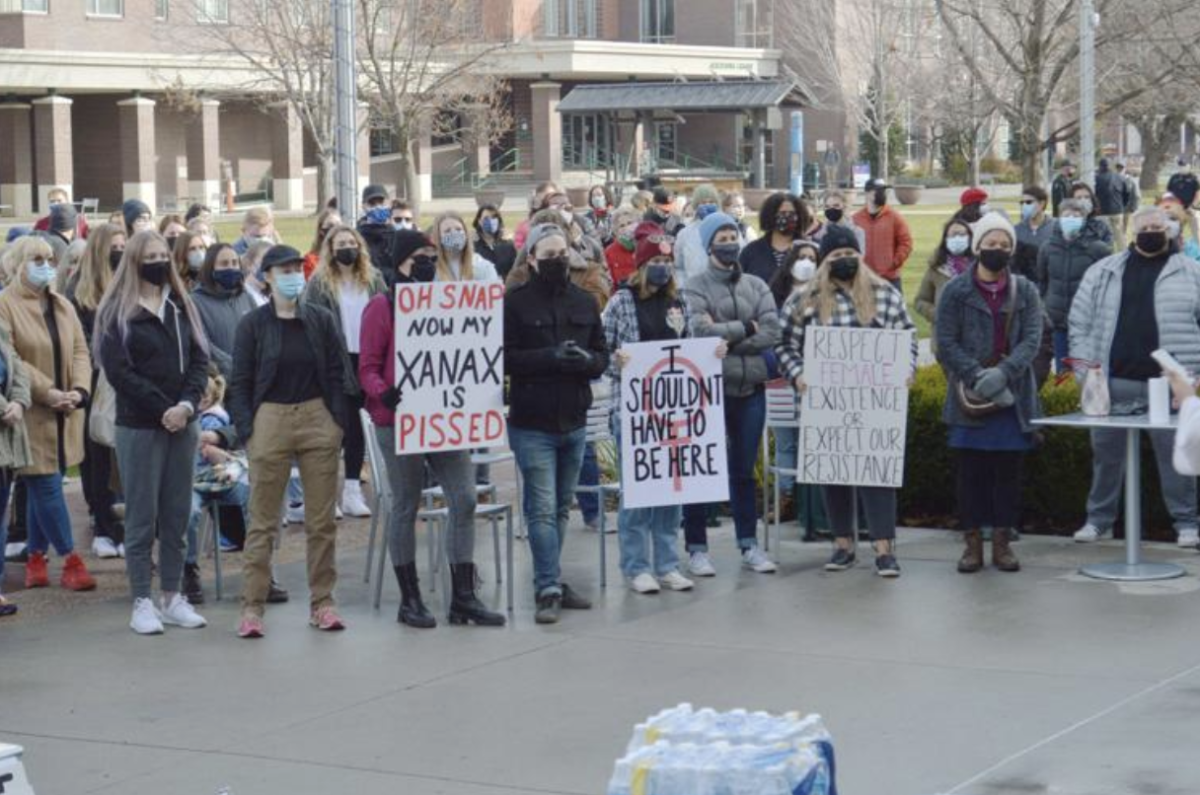

Patricia Ruyle • Jun 5, 2024 at 8:13 pm
What insight into the history of the current, crazy political situation!!!
Josiah, keep writing and I’ll keep reading. Pat, age 89, PHD